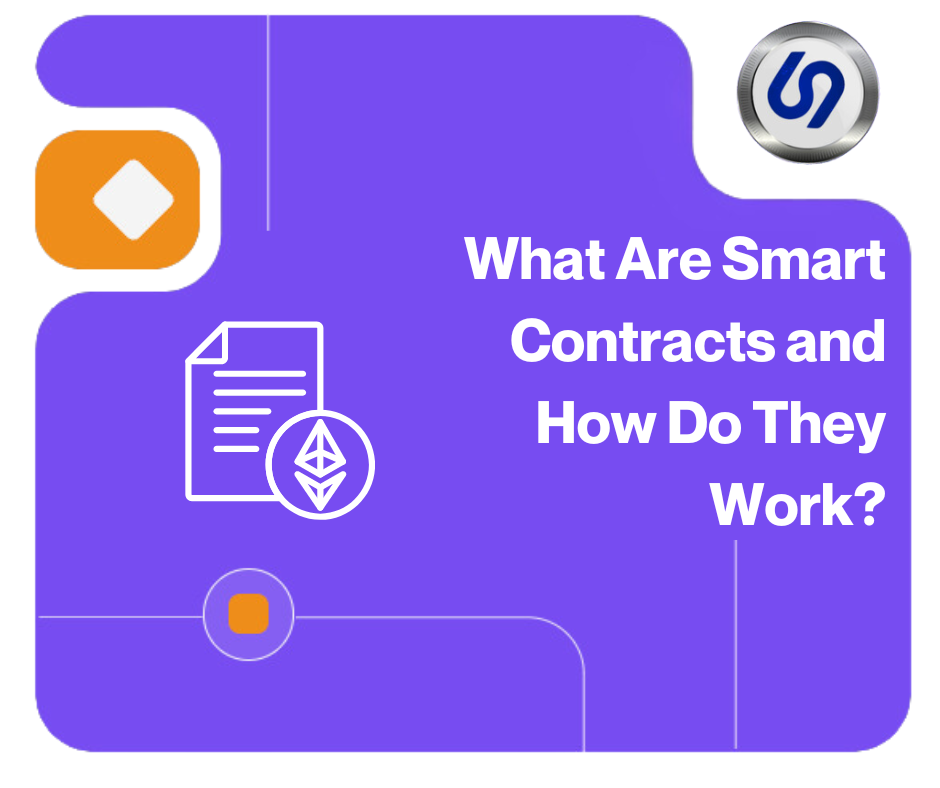
















 What Are Smart Contracts and How Do They Work?
What Are Smart Contracts and How Do They Work?
In the evolving landscape of blockchain technology, smart contracts have emerged as one of the most revolutionary innovations. These self-executing contracts with the terms of the agreement directly written into code are transforming industries by automating processes and reducing the need for intermediaries. This blog will explore what smart contracts are, how they work, and their potential impact on various sectors.
Smart contracts are digital agreements that automatically execute when predefined conditions are met. They run on blockchain platforms, most notably Ethereum, which was the first to introduce the concept of smart contracts to the world. Unlike traditional contracts, smart contracts do not require a trusted third party to enforce the terms. Instead, the code itself enforces the agreement, ensuring that all parties adhere to the terms specified.
Key Characteristics of Smart Contracts:
Automation: Smart contracts execute automatically when conditions are met.
Security: They are stored on a blockchain, ensuring tamper-proof execution and record-keeping.
Transparency: All parties can view the contract terms and monitor execution, providing full transparency.
Immutability: Once deployed, the code cannot be altered, ensuring that the terms remain unchanged.
Smart contracts operate on blockchain technology, which provides a decentralized and secure environment for executing agreements. Here’s a step-by-step breakdown of how they work:
Agreement Setup:
The parties involved agree on the terms of the contract. These terms are then translated into code, which specifies the conditions under which the contract will execute.
Coding the Contract:
Developers write the smart contract code, which includes the conditions and the actions to be performed when these conditions are met. The code is then deployed onto a blockchain platform.
Blockchain Deployment:
Once deployed, the smart contract resides on the blockchain, where it is accessible to all participants. The contract awaits the triggering conditions.
Execution:
When the predefined conditions are met, the smart contract automatically executes the agreed-upon actions. For example, a payment is released, or a digital asset is transferred.
Verification and Recording:
The blockchain network verifies the execution of the contract. Since the blockchain is immutable, the execution and outcome of the contract are permanently recorded, providing an auditable trail.
Finance and Banking:
Automated Payments: Smart contracts can automate payments when specific conditions are met, reducing the need for intermediaries and lowering transaction costs.
Lending and Borrowing: Platforms like Aave and Compound use smart contracts to facilitate decentralized lending and borrowing, ensuring transparency and security.
Supply Chain Management:
Tracking and Transparency: Smart contracts can track products from origin to destination, ensuring transparency and reducing fraud.
Automated Processes: They can automate processes such as inventory management and payment settlements, improving efficiency.
Real Estate:
Property Transactions: Smart contracts can streamline property transactions by automating the transfer of ownership and payment upon fulfillment of conditions.
Rental Agreements: They can manage rental agreements, automating rent payments and lease terms.
Insurance:
Claim Processing: Smart contracts can automate insurance claims, releasing payments when predefined conditions are met, such as the occurrence of a natural disaster.
Policy Management: They can manage policy issuance and renewals, ensuring compliance and reducing administrative costs.
Healthcare:
Patient Records: Smart contracts can securely manage patient records, ensuring that only authorized parties have access and that the data is tamper-proof.
Medical Trials: They can automate the management of medical trials, ensuring that all conditions and protocols are followed.
Efficiency and Speed:
By automating processes, smart contracts reduce the time and effort required to execute agreements, leading to faster and more efficient transactions.
Cost Savings:
Eliminating intermediaries reduces transaction costs, making smart contracts a cost-effective solution for many applications.
Security and Trust:
The decentralized nature of blockchain ensures that smart contracts are secure and tamper-proof, building trust among participants.
Transparency and Accountability:
All parties can view the contract terms and execution, ensuring transparency and accountability throughout the process.
Complexity and Expertise:
Writing smart contracts requires technical expertise in coding and blockchain technology. Errors in the code can lead to unintended consequences.
Legal and Regulatory Issues:
The legal status of smart contracts varies by jurisdiction, and there are ongoing debates about their enforceability and regulation.
Scalability:
Blockchain networks face scalability issues, which can affect the speed and cost of executing smart contracts.
Smart contracts represent a significant advancement in the way we conduct and enforce agreements. By leveraging blockchain technology, they offer automated, secure, and transparent solutions for a wide range of applications. While challenges remain, the potential benefits of smart contracts are immense, paving the way for more efficient and trustworthy digital transactions.
As smart contracts continue to evolve and gain adoption, staying informed and understanding their implications will be crucial for leveraging their full potential in various industries. Whether you are a business, developer, or user, exploring the possibilities of smart contracts can open new avenues for innovation and efficiency.